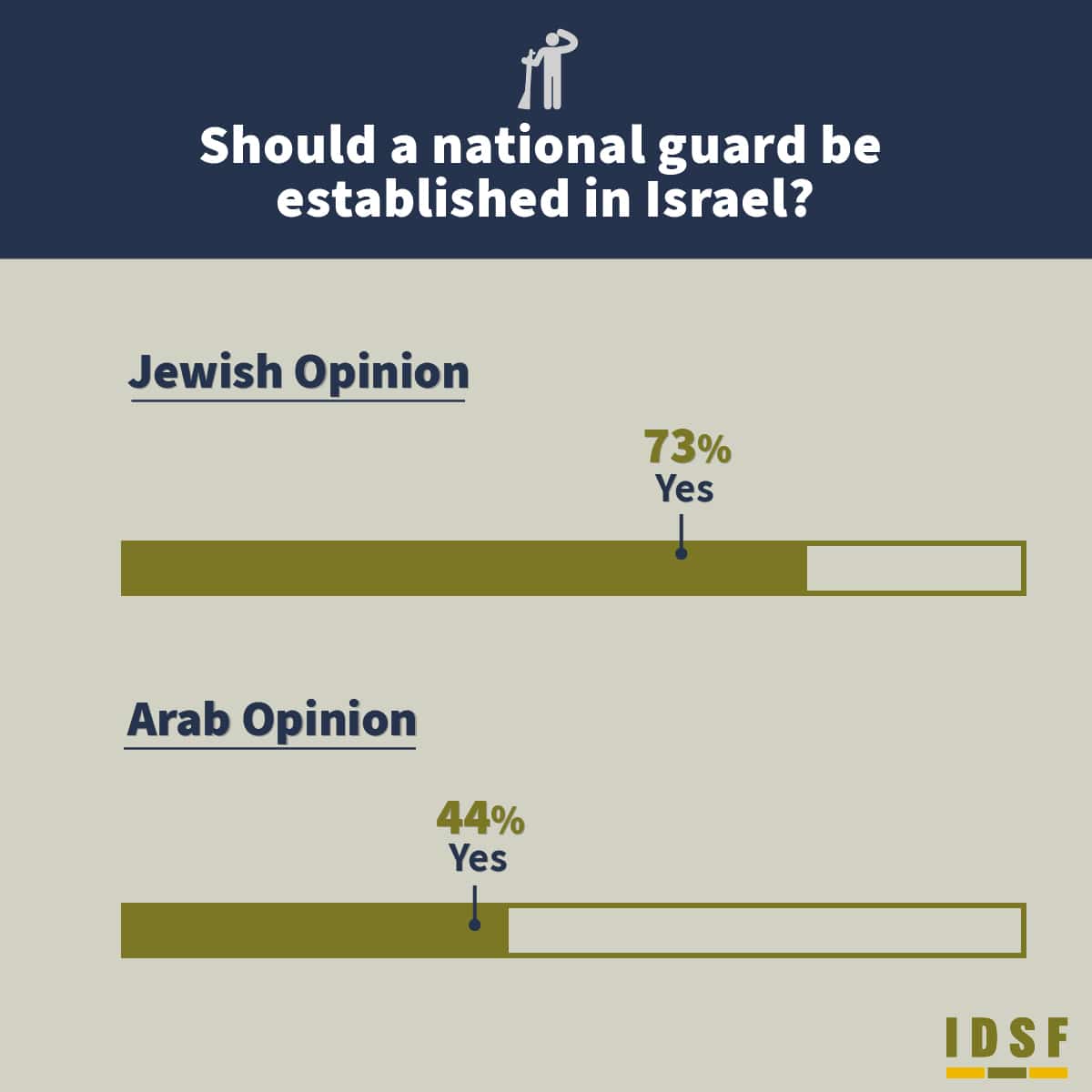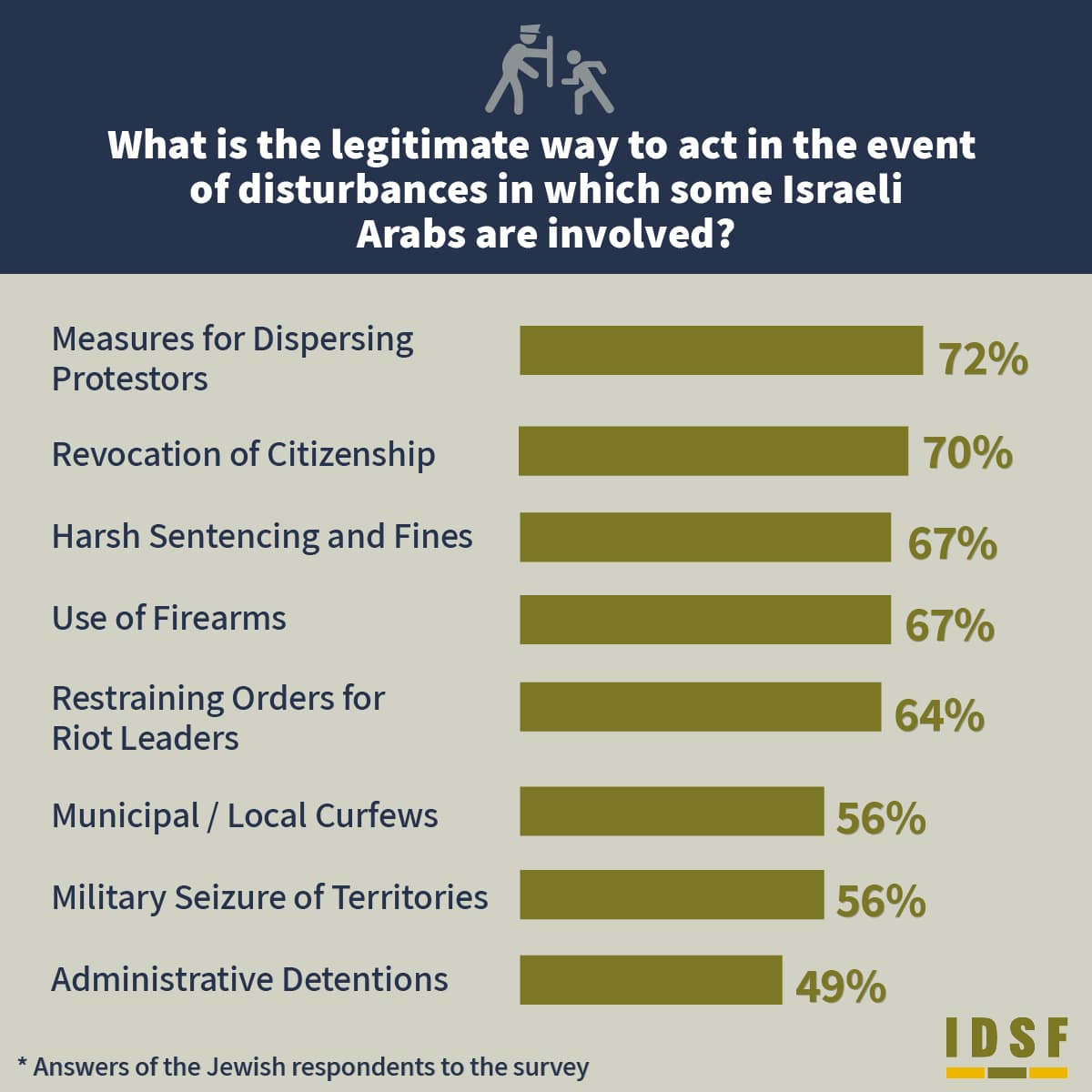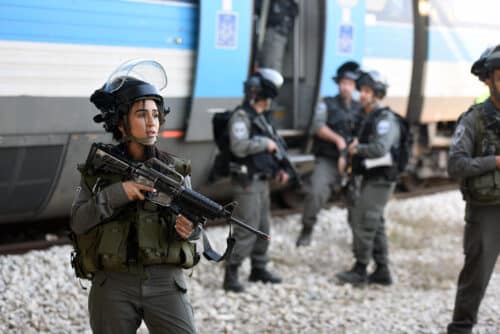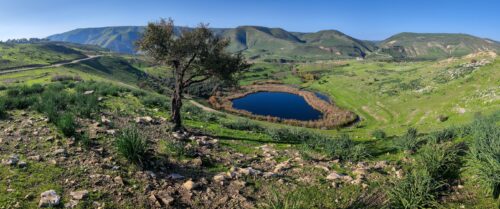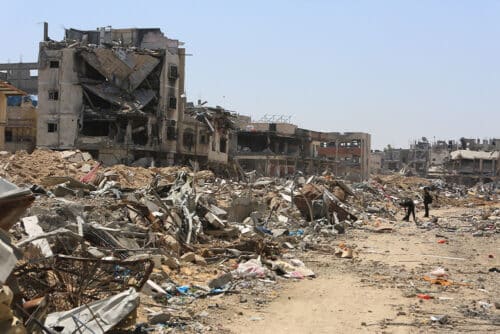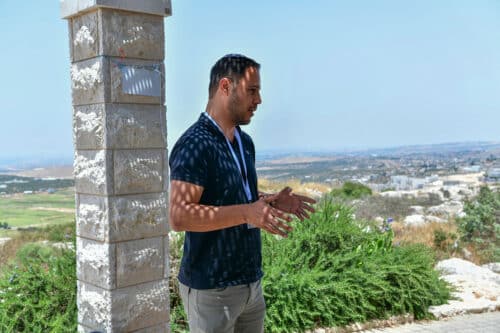We continue to analyze the results of our in-depth survey, which was performed in the first quarter of 2022 and dealt with a variety of security issues. In our previous article, we analyzed the perceptions of Israeli Arabs concerning our right to be here and will now focus upon the issue that many speak of, but few have studied in-depth: the lack of governance and its implications upon Israeli society and our sense of security.
The survey was conducted by our Research Department, with the statistical support of Dr. Haggai Elkayam. The sample was taken from 1,068 respondents among the adult population in Israel that uses the Internet. For the Jewish sample (808 respondents) the sample’s maximum margin for error is ±3.45% with a probability of 95%; For the Arab sample (260 respondents) the sample’s maximum margin for error is ±6.80% with a probability of 95%.
Lack of Governance: we are not on the map and the personal security is impaired
The words “lack of governance” are bandied about on social media and emerge more than once in the media in various contexts. Israeli citizens have suffered from instances of demands for protection money in the South and the north, Jews are attacked in Jerusalem at the points of friction between Jewish society and Arab society, illegal construction in the Arab sector continues unabated, and we all remember the events of May of last year in the mixed cities during Operation Guardian of the Walls.
To place the issue of governance at the center of the public discourse and at the top of the policy makers’ priorities, we decided to discover regularly what was the “governance index” throughout Israel, and to track the changes thereof every quarter.
We checked with Jews in the Israeli public how much they believed the State of Israel was asserting its sovereignty in various locations throughout the state on a scale of 1-7 and calculated the degree of governance in each region according to those who marked a degree of governance of 5-7.
The emerging picture is ugly. As you can see, the governance index is between 9% at worst and 46% at best. Thus, for instance, the sense of governance in the area of the Negev and East Jerusalem stands at only 9%. In other words: only one in ten of the respondents feel that Israel is asserting its sovereignty in these regions. The sense of governance in Judea and Samaria as well as in mixed cities such as Lod, Acre and Jaffa is not much higher: 19% and 21% respectively. Similarly, the sense of governance in the Galilee stands at 22%. The highest figure is also the most worrisome: the sense of governance is only 46% in the western part of Israel’s capital, Jerusalem.
It is therefore hardly surprising that the public’s faith in the police, the entity responsible for enforcing the law and maintaining public order, is quite low: 73% of the Israeli public attest that their faith in the Israeli Police is low, while only 18% have great faith in it (9% are neutral).
The general sense of a distinct lack of governance and a low faith in the police Directly reflects upon the sense of personal security of Israel’s citizens. In accordance with the findings of the survey, only 36% of the entire Israeli public feels personally secure.
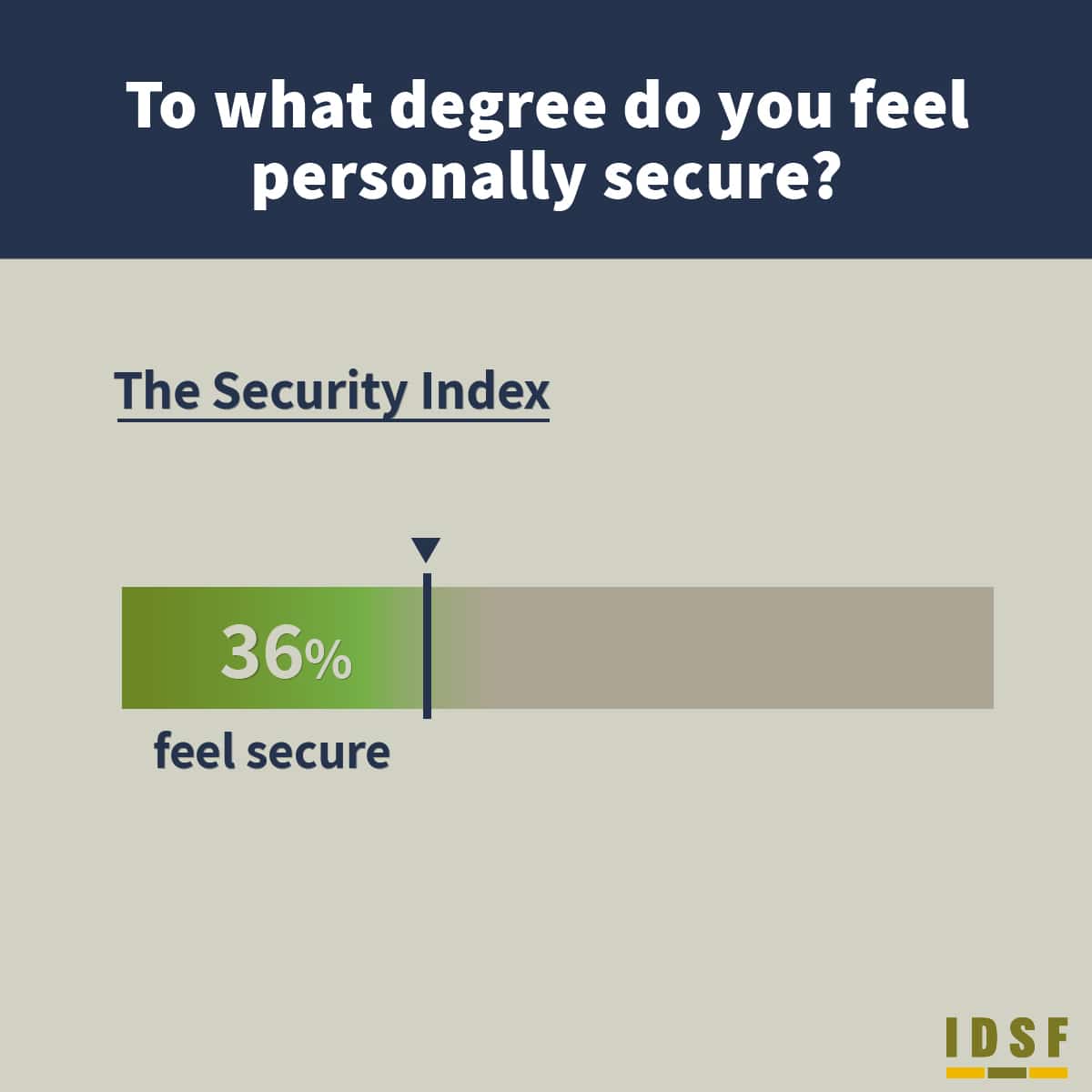
As we can see, Israeli citizens believe that there are things that can be done to improve the situation, and that we will continue to have our finger on the pulse concerning the sense of governance and personal security in the next surveys as well.
The crime in the South: who’s protecting the residents?
As stated, only 9% of the Jewish respondents believe that the State of Israel is asserting its sovereignty in the Negev. If results are weighted together with the responses of Israeli Arabs , the situation does not improve much and stands only at 15%.
We decided to delve into an issue that became headline news about a year ago, when Aryeh Schiff, fired at felons from the Bedouin diaspora near his home when they attempted to steal his car. One of the felons later died of his injuries and a public debate broke out around the question of whether Schiff acted appropriately or should be put on trial for his actions.
We first sought to discover whether the Israeli public believed that the police is successfully contending with crime in southern Israel. A rather grim picture emerged from the data: 89% of the public believes that the Israeli police is unable to contend with crime in the south. Afterwards we sought to discover whether the Israeli public believes a citizen should be put on trial for defending his property with a firearm. 70% believe that this should not be done, a figure that is unsurprising considering the public’s lack of faith in the police and its handling of the situation.
This might be one of the reasons that 34% of all the survey’s respondents considered getting a weapon license over the last year for self-defense purposes.
The citizens are called to the flag: A National Guard – an immediate need
The data is grim, but what interests us is what can be done to repair the situation. The obvious insight, which arose within our movement during the events of May, is the need for a National Guard – an entity that is comprised of citizens who care about Israel’s internal security, which would offer aid during disasters, provide a response for violent disturbances and the like. Such a model is not our invention, and it exists in various countries around the world, including the United States.
Does Israeli society agree with this need? Turns out it certainly does. 75% of Jewish respondents believe that a National Guard should be established in Israel, as well as 44% of the Arab respondents. However, we know that there is a difference between a desire of the public to establish an entity such as a National Guard and an actual willingness to enlist to it. Therefore, our next question was whether the Israeli public was willing to enlist to it in practice: the survey indicated that over half of the Jewish public (54%) was willing to enlist in a National Guard, which is impressive and encouraging.
This figure encouraged us to actively assist in the establishment of the National Guard, and we have recently launched an initiative, in conjunction with Magav, to establish a National Guard comprised of volunteers of the IDSF Movement, reservists and Magav soldiers. The response in the field was highly positive, exactly as predicted by the survey, with thousands of volunteers contacting us with a request to be part of the National Guard.
Measures to Disperse Demonstrations: Which and how powerful?
The establishment of an entity that would ensure order and intrastate security is merely the first step on the path to achieving the goals of quiet and a sense of personal security for citizens of Israel. On the way there, we must give thought on how that entity would operate in the event of disturbances.
Most of the Israeli public is unwilling to accept violent disturbances: 80% of the Jewish respondents believe that violent, nationalistically motivated disturbances should be dealt with harshly, as do 74% of the Arab respondents.
Since the State of Israel is a Jewish and democratic state, even in the event of particularly violent disturbances, civil right must obviously be maintained and infringed upon to the absolute minimum, whether this is a physical infringement or the curtailments of rights.
Since the necessary balance between handling violent disturbances and civil rights is ultimately a matter of proportions, we examined what the public believes are actions that can be legitimately taken in the event of disturbances in which Israeli Arabs are involved. The gap between the Jews and the Arabs was much more significant in this question, and we will present the answers provided by the Jewish respondents to the survey below.
Use of measures for dispersing protestors received the most responses with 72%. This was followed by revocation of citizenship (70%), use of firearms (67%) and a similar percentage for harsher sentencing and fines, restraining orders for riot leaders (64%), municipal / local curfews (56%), the same percentage for a military seizure of territories (56%) and, finally, 49% of the public believes that administrative detentions are legitimate in the event of disturbances in which some Israeli Arabs are involved.
The data indicates that the Jewish public is tired of disturbances perpetrated by some Israeli Arabs and wishes to see the state restore its sovereignty in the locales where violent disturbances break out.
“Lack of governance is a real strategic threat”
“There is an inconceivable gap between the military, economic and technological power of the State of Israel and the power it projects outwards on the one hand, and the anarchy and lack of governance the state is experiencing internally on the other. It is similar to an apple that is shiny on the outside and rotting on the inside”, as Brigadier General (Res.) Amir Avivi, the founder of the IDSF Movement, describes his feelings regarding the findings of the survey.
“Israel is contending with a Palestinian Arab campaign that challenges its sovereignty and governance throughout the state, while illegally seizing control of lands at an increasing rate and with the financial support of the European Union, while using the same principles and methods initially employed by Zionism. Alongside this, there is a general campaign to undermine the personal security of Jews everywhere and infringe upon their basic right to a nation state. Against this comprehensive campaign, Israel is practically helpless”, he specifies and summarizes: “The status quo cannot continue. It is time for a resolute and comprehensive initiative that will return the Zionist train back on track by establishing settlements, seizing control of the open spaces, Judaizing the Negev and the Galilee and engaging in Kibbutz Galuyot (Gathering of Israel)”.



